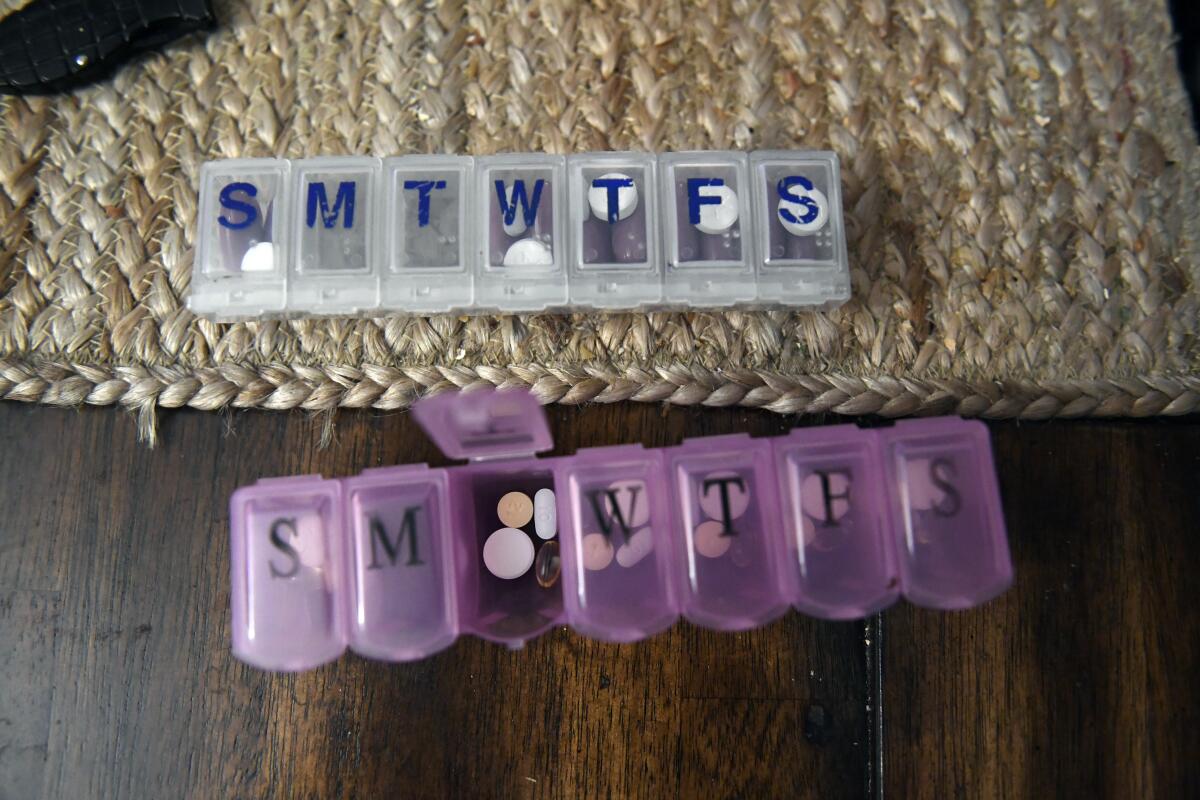Flexible spending account use-or-lose deadlines are back after a pandemic hiatus

- Share via
Dear Liz: The hospital where I work was bought out by another hospital last summer. I was in a flexible savings account at that time with my workplace. I had to enroll in a second FSA through the new medical facility. Trying to keep these two separate FSA accounts was not easy. I thought by March 31 of this year, my 2021 FSA accounts were spent. However, I recently found out I still had $700 left in one of my FSA accounts. I contacted the organization, pleading my case in regards to the midyear takeover and the difficulty of trying to keep two FSA accounts straight. No luck! Do I have any recourse?
Answer: The rules about spending FSA money were loosened after the COVID-19 pandemic hit, but it’s possible your employer didn’t opt in to those changes.
Medical FSAs, which allow employees to put aside pretax money to pay qualified healthcare expenses, have “use it or lose it” provisions that require the money to be spent within certain time frames. Normally, the deadline is Dec. 31, but employers can offer a grace period that extends the cutoff to March 15 of the following year, or allow employees to roll over a few hundred dollars ($550 in 2021 and $570 for 2022).
The federal Taxpayer Certainty and Disaster Tax Relief Act of 2020 gave employers the option of extending their spending deadlines by up to a year, or allowing their workers to roll over all the funds left in their FSAs in 2020 and 2021. Employers weren’t required to make these changes, which have since expired.
If your employer didn’t change its rules, it may not be too late, said Nitasha Kadam, a tax analyst for Wolters Kluwer Tax & Accounting. Plans can be amended retroactively to provide this relief. But the deadline is fast approaching — changes for the 2021 plan year would have to be made by Dec. 31, 2022. It’s worth asking about, although your case might be stronger if you can find co-workers in the same boat.
In any case, this is a timely reminder for other people who have money left in their FSAs: Check the deadlines, and make sure you spend the money before it’s gone forever.
A new Biden administration rule will make more families eligible for subsidized health insurance through the Affordable Care Act. Covered California estimates that more than 600,000 Californians could benefit.
Why you need a credit score
Dear Liz: I use a credit card for most of my shopping and pay the balance in full every month. The card was opened years ago as a business card, but the business has since been closed. My credit scores are high but my card isn’t listed on my credit reports. I believe that is because it’s a business card. Should this be of concern to me? My wife and I own our home outright and have no other debt.
Answer: Your scores should be fine as long as you have (and occasionally use) other credit cards that show up on your reports at the three major credit bureaus.
If you didn’t have other active credit accounts, eventually your credit reports would no longer generate credit scores. That could make it much more difficult and expensive to borrow money, rent an apartment, get a cellphone and, in most states, insure a home or a car.
There is no way to completely prevent your identity from being stolen. But taking these steps can help make it less likely, and lessen the impact if it does happen.
Getting your delayed refund
Dear Liz: Here’s another option for the person whose tax return got amended and who was still waiting for a refund. Contact your member of Congress or U.S. senator. They have constituent service staff who might be able to prod the IRS. This worked for our family when we learned my late father was owed two refunds from a few years before his death. The abysmal IRS phone system kept hanging up on me. My U.S. senator happens to sit on an IRS oversight committee and his staff is the only reason we finally received the refund checks after 11 months of wrangling.
Answer: Thanks for sharing your experience. Constituent service staffs can be helpful in resolving serious problems with various government agencies, although many people currently expecting refunds will simply have to wait to get their money. That’s extremely unfortunate, since refunds are a financial lifeline for many struggling households.
As mentioned in the previous column, the IRS is still slogging through a massive backlog created by the pandemic and years of inadequate funding. Getting through on the phone remains difficult, so people’s first stop should be the IRS.gov website, which offers a number of self-help resources for routine tasks, including the “Where’s My Refund?” tool, the “Where’s My Amended Return?” status tracker and a wealth of articles, publications and calculators.
The next stop might be the Taxpayer Advocate Service, which allows taxpayers to file a request for assistance if a missing refund is causing financial difficulties. The service is also warning about significant delays in helping taxpayers because of the IRS backlog.
Liz Weston, Certified Financial Planner, is a personal finance columnist for NerdWallet. Questions may be sent to her at 3940 Laurel Canyon, No. 238, Studio City, CA 91604, or by using the “Contact” form at asklizweston.com.
More to Read
Inside the business of entertainment
The Wide Shot brings you news, analysis and insights on everything from streaming wars to production — and what it all means for the future.
You may occasionally receive promotional content from the Los Angeles Times.












